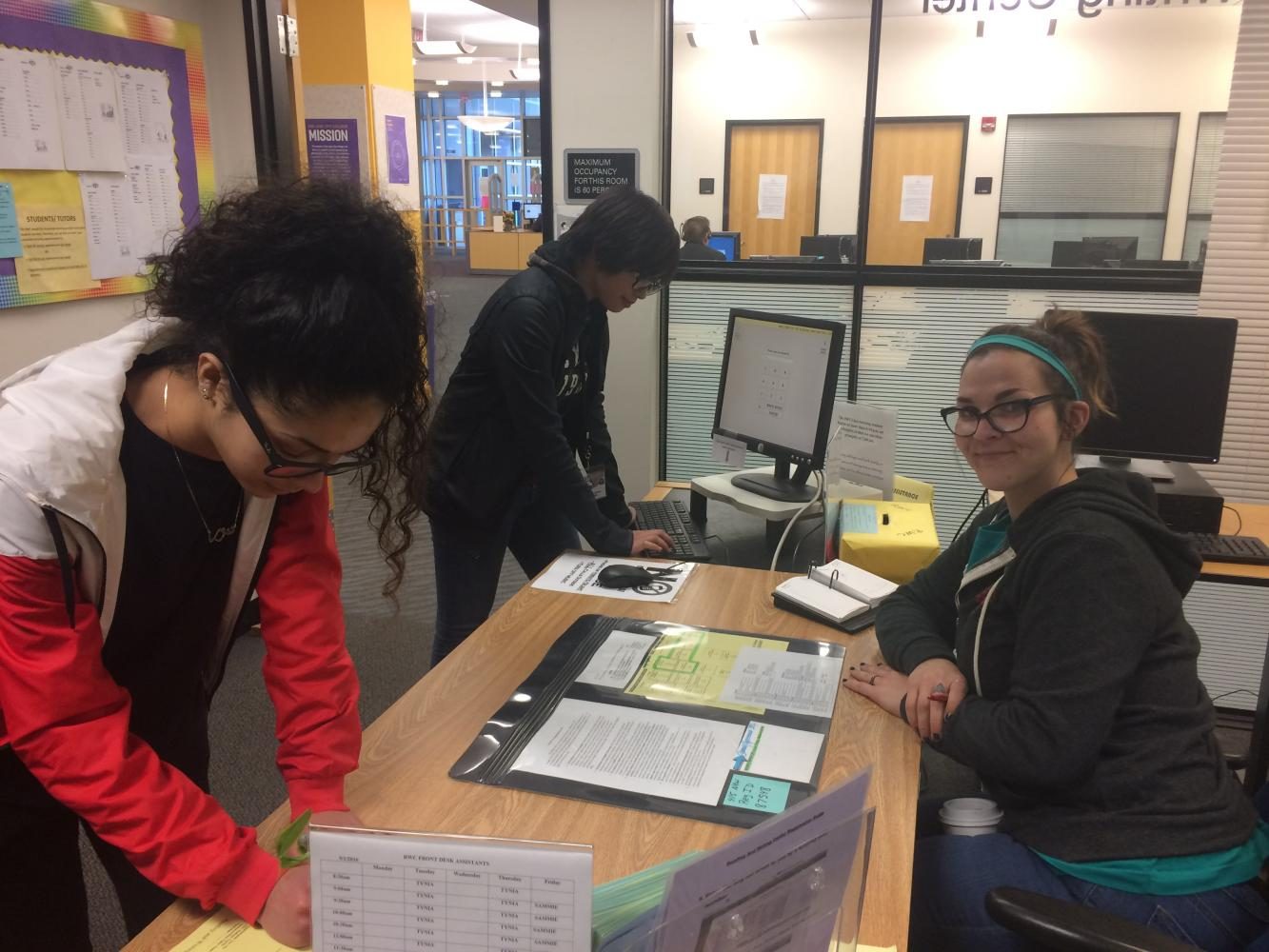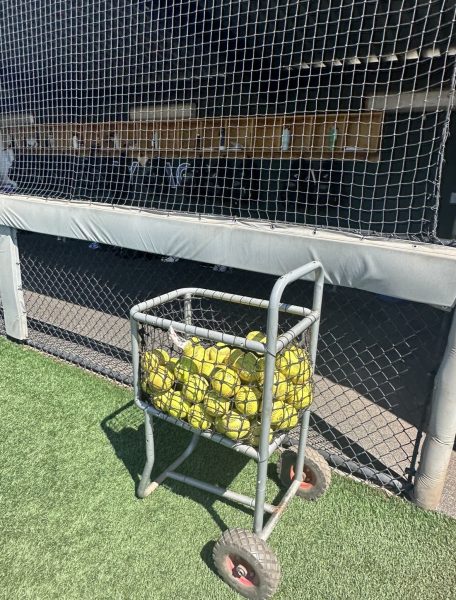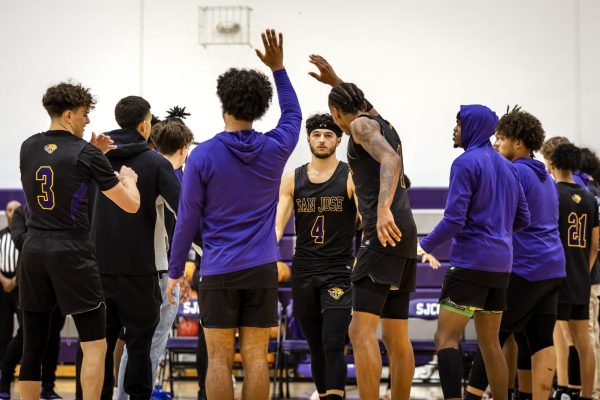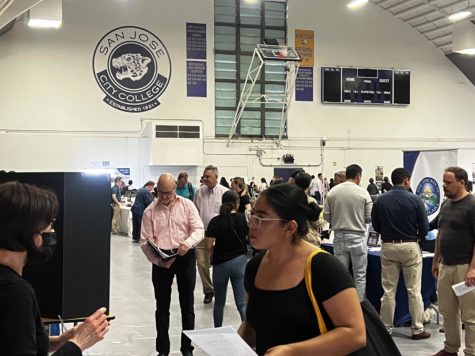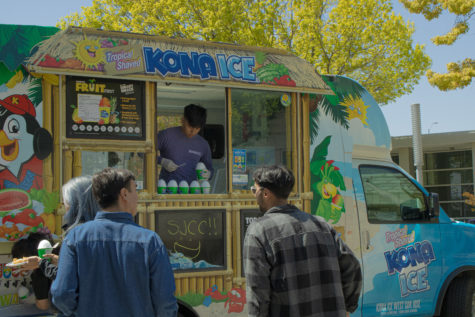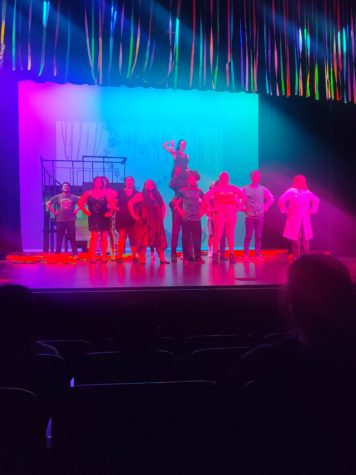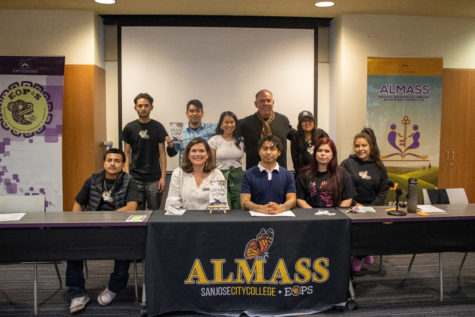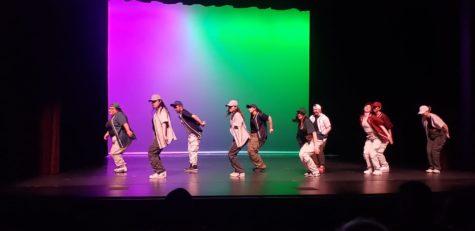Tutoring equals success
How City College students can take advantage of campus opportunities
(Left) Peer tutors at the RWC Noor Basma, Lauren Apostle and Sammie Gilmore demonstrate how to sign in for a tutoring session.
May 15, 2017
San Jose City College offers many opportunities for students to receive assistance from tutors on multiple subjects. The Reading and Writing Center, Math Lab, ESL Lab, Metas Center and Disability Support Programs and Services all offer extra guidance and homework help outside of the classroom.
“There is a myth out there that places like the RWC are just for people with learning disabilities or who are really struggling, but tutoring can help anybody,” said faculty coordinator in the RWC and SJCC English professor Teresa McKimmy.
According to SJCC tutoring center statistics taken through spring 2016 surveys, “95 percent of students identify the assistance they received as contributing directly to their learning.” Students who take advantage of services that provide additional homework help are more likely to be successful pupils overall.
“(Tutoring has an) extraordinarily large success rate. Students overwhelmingly identify tutoring as a helpful resource which makes a difference in their work,” McKimmy said.
“I go to both (the RWC and Math Lab) because it just helps me to have someone there,” said Andy Nguyen, 19, chemistry major. “Even in classes I’m kind of good in, I like to learn things at my own pace. For English, my essays get better.”
McKimmy implemented surveys in the RWC that are handed out to students during each session, in which they can anonymously critique their experience. According to the outcome of these surveys between March and May of the 2016 spring semester, 95 percent of 364 students identified their session in that center as being ‘very helpful.’
The Metas Center, located in M-104, offers tutoring options in math, biology, chemistry, physics and ethnic studies. Through the center, there are a variety of specialized programs that have benefits available for any student.
“We offer help to all students, as long as they are involved in one class that we can provide help for,” Metas program coordinator Angela Gullerud said. “Some instructors offer extra credit for students who take Peer-Led Team Learning for extra credit.”
Gullerud said the PLTL program involves workshops and activities run by peer-tutors, which are designed to help students with course material and study skills. Besides PLTL, Metas offers the Caminos Summer Bridge and First Year Experience program, hour-long math tutoring sessions, supplemental instruction, the Cultivamos Excelencia Research Scholars program and even academic counseling.
“We want to promote diversity, not only STEM majors,” Gullerud said.
In addition to receiving help, there are also opportunities to tutor others. If a student is especially strong in any area of study, they could actually get paid to provide assistance to their peers on campus.
“That was one of the reasons I became a peer tutor – I wanted to help other students the way I was helped to pass classes and improve my writing,” said Sammie Gilmore, a former tutee in the RWC and current peer tutor there.
Gilmore said that she was referred by a former English professor, and then went through several steps before becoming a peer tutor on the floor. Before one becomes a tutor in the RWC, she said potential employees must go through an interview process, take a semester-long class and shadow other tutors as well.
“I admire the students who come here because it takes a lot of bravery to admit you’re not good at something,” peer tutor Lauren Apostle said.
Being an English tutor doesn’t stop Apostle from receiving feedback as well: “I go to the Math Lab… it’s nice to see many ways of doing something,” she said.
In addition to tutor sessions, each of the centers on campus offers resources such as access to computers, textbooks and calculators, as well as a space to study. Peer tutor at DSPS Marcos Verbera said that there are services in his center, such as a tech lab, which are available to those preapproved by counselors.
“The wheelchair can sit comfortably (in DSPS). For students who can only speak we have Dragon (speech recognition),” Verbera said. “We cater to anybody who needs it.”
Peer tutor at the RWC Noor Basma said she encourages students to try out a tutoring session on campus because “feedback from others is always helpful.” Gullerud said that statistics prove that centers like Metas help boost success rate, which she identifies as passing with a C or better.
“Students who attend any workshop are more likely to pass and have success in their class,” Gullerud said. “The success rate is close to 90 percent, which is way higher than the medium rate for those classes.”

